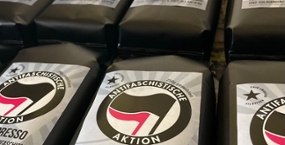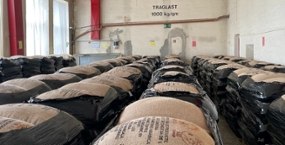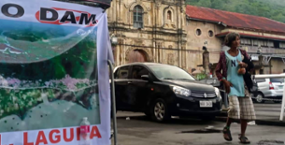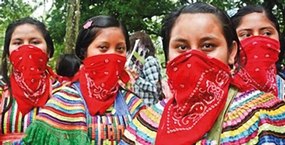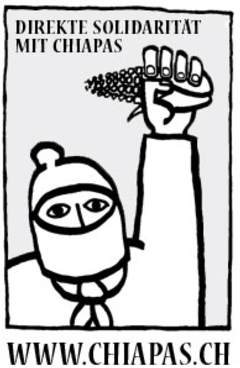For an entirely different whole
Principles of solidary trade
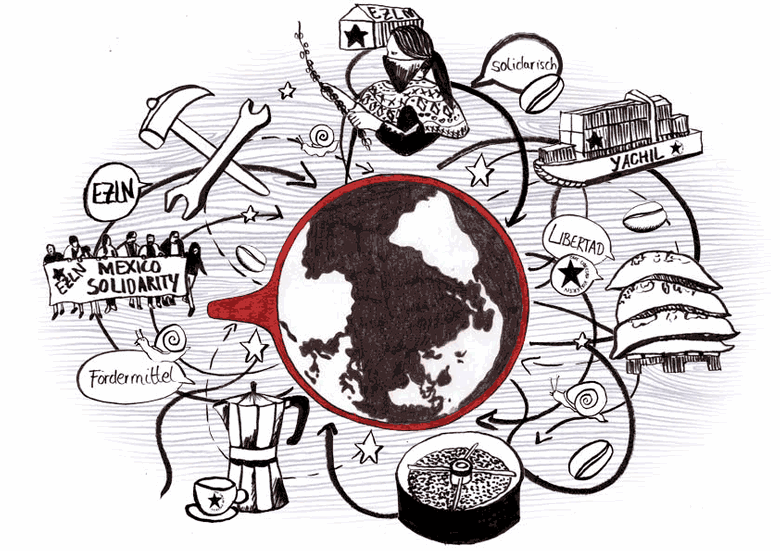
1. Agreement on good raw coffee prices
In alignment with our mission, we are paying the best possible price for small-scale farmers and cooperatives' work. In our view, social standards and funding are as important as high coffee quality and sustainable processing. In the spirit of solidarity, we are paying more than the Fairtrade minimum price for raw coffee.
2. Long-term cooperation - fixed purchase volumes
Café Libertad offers advance financing of future harvests to partner coops up to 60% of the total amount by concluding preliminary contracts. These financial means are earmarked for the purchase of coop members' coffee and the preparation of exports. The implementation of sustainable cultivation methods and organic production is supported by premiums.
3. Sponsoring and supporting the establishment of coops
The economic situation and the degree of self-organisation are exercising considerable influence on protest movements' foundations. We don't participate in Fairtrade seals because we refuse to 'invest' in marketing campaigns or distribution structures of supermarket chains. We prefer to support our partner coops, like Zapatista communities in Chiapas or women's coop Aprolma in Honduras, directly by funding. Since 1999, we have supported Zapatista communities, our partner coops and other projects disbursing an amount of 450.000 Euro. Additionally, a lot of smaller amounts have been transferred to oppositional, queer-feminist or anti-racist structures.
4. Direct distribution - involvement of customers
Direct distribution is an important part of Café Libertad Kollektiv's concept. Resale is taking place in world shops, health-food shops and book stores charging their own premiums. However, all customers can as well order at Café Libertad directly or shop at depots in several cities selling our coffee at the Café Libertad price without surcharges.
5. Communication and political discussion
Direct import, the tightest possible interconnection of production, distribution and consumption, does not only enforce consciousness of mutual interests but is at the same time promoting transparency between different protagonists. Besides coffee import, we are involved in unpaid political work, e.g. at information meetings or solidarity activities.
6. You cannot buy a better world – make yourself part of the movement
A crucial point of the idea of solidary trade is considering not merely trade relations but all conditions of society in a global perspective. Solidary trade isn't neutral but is taking an active position and is making itself part of local struggles and social movements all over the world. The emphasis is on learning from mutual experiences, discuss critical questions collectively and to question one's own point of view self-critically.
7. Considering local conditions
Increasing poverty even in Europe is exerting a negative impact on fair and solidary trade. Therefore, reasonable consumer prices are essential: solidarily traded coffee is not supposed to be a luxury good for well-off buyers but has to be available for as many people as possible. In this view, besides de-colonialisation of relationships and the shortest way possible from producer to consumer, the development of social movements against marginalisation, exploitation and unacceptable working conditions is required. As important, in our opinion, are refugees' rights and the abolition of the European border regime which is penetrable for goods and investment, but closed for people fleeing from the consequences of global trade like climate change, war or poverty. United we stand!
